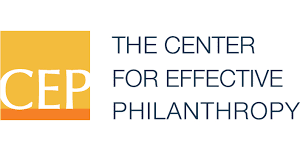by Andrea Coveri, et al, in Intereconomics…The link between Big Tech and the military apparatus brings back traditions of economic thought too often forgotten or intentionally removed, such as the twentieth century theories of imperialism and monopoly capital (Hobson, 1902; Baran & Sweezy, 1966). The debate on the military-industrial complex, a concept associated with President Eisenhower’s farewell address in 1961, also regains relevance. However, it seems to have been transformed into a digital-military-industrial complex where the key actor, Big Tech, share the peculiarity of being, at the same time, big market players, controllers of technologies essential to citizens’ lives and indispensable partners of the military apparatus. This makes the integration of state and private capital even closer and more complex than in the past.
It’s time for a new approach to the current context
by Phil Buchanan in CEP…Just in the past weeks I’ve heard leaders at philanthropic funders say things like ‘we’re trying to be small right now,’ ‘the lawyers are advising us to stay under the radar,’ ‘we’re letting others do the talking right now,’ ‘we’re laying low until we understand what everything will look like in six months.
For many of us, it doesn’t cost much to improve someone’s life, and we can do much more of it
by Hannah Ritchie in Our World in Data…Most countries spend less than 1% of their national income on foreign aid; even small increases could make a big difference.
Elite fragmentation in the United States: Global or domestic phenomenon?
by Mark Mizruchi in American Behavioral Scientist…The actions of societal elites exert a disproportionate impact on events and outcomes in their home societies. These actions are driven by a combination of factors internal and external to their nation.
The impossible math of philanthropy
by Hans Taparia and Bruce Buchanan in The New York Times…With one hand they generate supernormal profits by plundering society, and with the other they dole out a few crumbs to “save the world.” But they never will. The math simply doesn’t work.
What should philanthropy do about the US freeze on aid?
by Benjamin Bellegy in Alliance Magazine…We can worry that some philanthropies might reorientate their giving to align with the new zeitgeist, for instance divesting from issues such as climate or social justice.
More in this category
The impossible math of philanthropy
by Hans Taparia and Bruce Buchanan in The New York Times…More often than not, charities work to mitigate harms caused by business. Every year, corporations externalize trillions in costs to society and the planet. Nonprofits form to absorb those costs but have at their disposal only a tiny portion of the profits that corporations were able to generate by externalizing those costs in the first place. This is what makes charity such a good deal for businesses and their owners: They can earn moral credit for donating a penny to a problem they made a dollar creating.
Rolling out the doughnut
in Beshara Magazine…We talk to Leonora Grcheva of the Doughnut Economics Action Lab about how Kate Raworth’s innovative economic theory is being translated into sustainable practice in cities and regions across the world.
A food apocalypse is coming; There is no plan to feed Britain in a crisis
by James Rebanks in UnHerd…The answer is to be ready, with a more resilient and secure food system before something goes wrong. We need an inspired farming system that’s largely confined to our own island, and which we can rely upon in a crisis. There is no food security unless we can feed people locally in an emergency.
The next financial crisis: Insurance
by Robert Kuttner in The American Prospect… Increasing damage from fires, hurricanes, and floods will destabilize a lightly regulated industry—and spill over into broader financial markets.
Responding to platform firm power: differing national responses
by Angela Garcia Calvo in New Political Economy…In the second half of the 1990s, the commercial internet emerged as a remarkable connectivity tool that promised ever tighter integration of economies and societies. The desirability of internet use meant that it diffused globally with astonishing speed. In the US, technological leadership, enormous sums of venture capital, a large, single market, and a neoliberal, laissez-faire political economic environment, unleashed an ongoing process of entrepreneurship that resulted in the emergence of what became the global platform leaders.

Society is right on track for a global collapse, new study of infamous 1970s report finds
by Brandon Specktor in LiveScience.com…A steep downturn in human population and quality of life could be coming in the 2040s, the report finds.
Extreme weather cost $2tn globally over past decade, report finds
by Ajit Niranjan in The Guardian…US suffered greatest economic losses, report commissioned by International Chamber of Commerce finds, followed by China and India
Insurable losses from natural disasters – how have the numbers changed over the years?
by Terry Gangcuanco in Insurance Business Magazine….Canadian insurtech MyChoice has released a new study showing a sharp rise in insurable losses linked to natural disasters over the past four decades.
Chartbook 310 The shock of the new: Dollar dominance and modern monetary macro in the 1920s. (Hegemony note 5)
by Adam Tooze in Chartbook…The denaturing of the gold standard and the emergence of the new field of monetary macroeconomics combined to pose the question of global financial leadership in a way it had never been posed before, compounding the shock of discovering that the United States was the obvious answer to that question of leadership. Basic questions of monetary governance would never again have the feeling of stark novelty they had at that moment.
The ‘perfect storm’ of climate risks that is sinking your net worth
by Andrew Behar in Impactalpha…If we don’t all wake up – as a nation – to climate risk, homeowners will soon literally and financially be underwater.
Food as you know it is about to change
by David Wallace-Wells in The New York Times…It can be tempting, in an age of apocalyptic imagination, to picture the most dire future climate scenarios: not just yield declines but mass crop failures, not just price spikes but food shortages, not just worsening hunger but mass famine. In a much hotter world, those will indeed become likelier, particularly if agricultural innovation fails to keep pace with climate change; over a 30-year time horizon, the insurer Lloyd’s recently estimated a 50 percent chance of what it called a “major” global food shock.
Why shifting from prediction to foresight can help us plan for future disruption
by Roger Spitz in World Economic Forum…As the world becomes more complex, foresight methodologies account for a greater set of possible futures.
Scenario development, a foresight methodology, is an alternative to prediction which can help map new possibilities.
Foresight may predict possible futures but more importantly, it allows for preparation.
Paraphilanthropy: Giving money its freedom papers
by Bayo Akomolafe….What addressing philanthropy’s colonial legacies asks of this moment.
The status of U.S. oil production: 2024 update everything shines by dimming
by Roger Blanchard in Resilience.org…The fact that U.S. oil production reached a very high level in 2023 and that so much of the production came from Texas made me think of the first major Texas oil bonanza

A big solar company may be collapsing
by Alana Semuels in Time….One of the largest residential solar installers in the U.S. appears to be on the cusp of failing, the latest sign of the troubled industry’s struggles.


